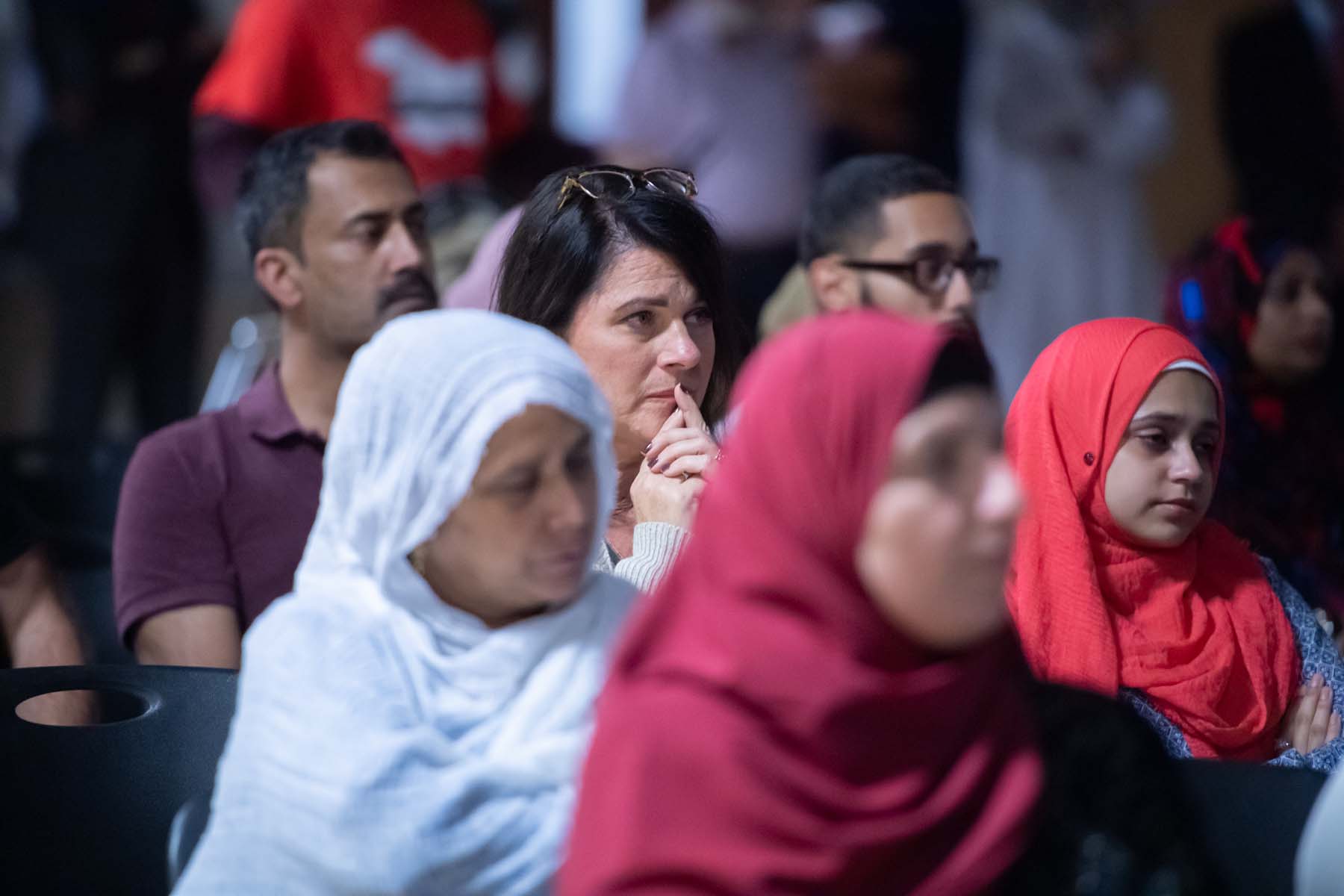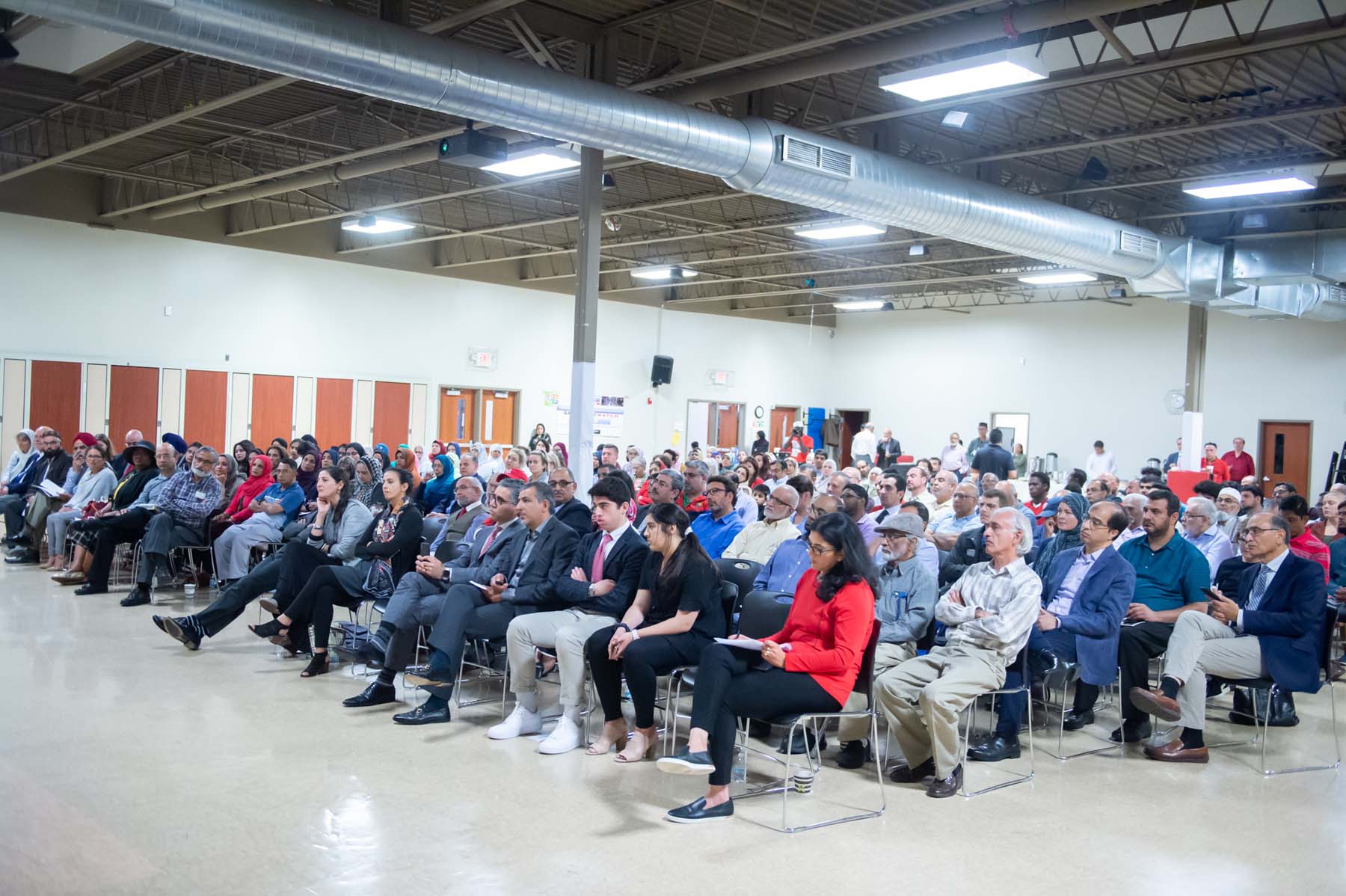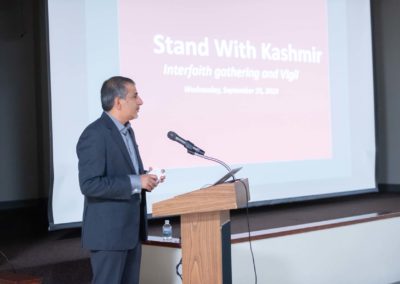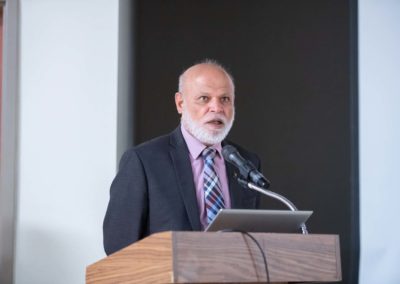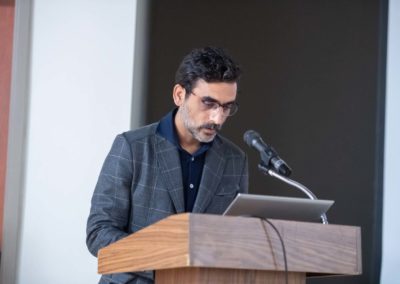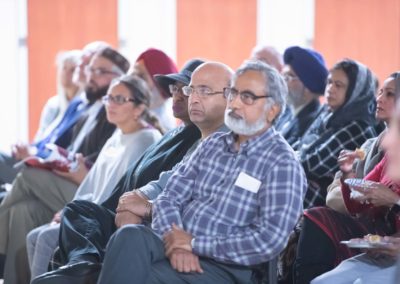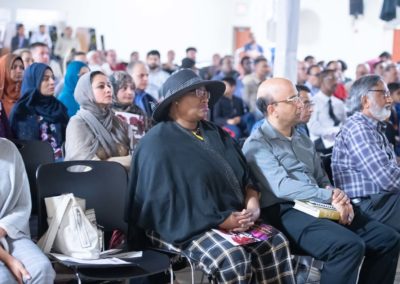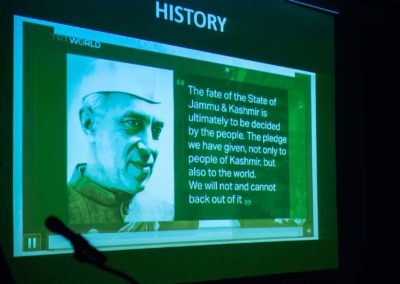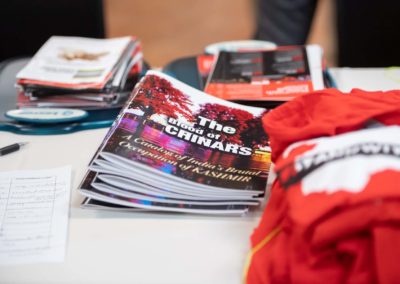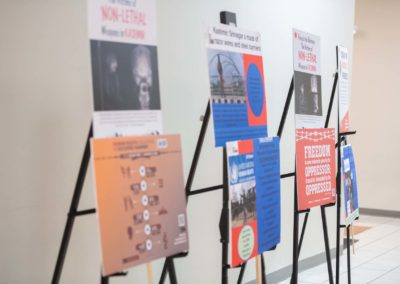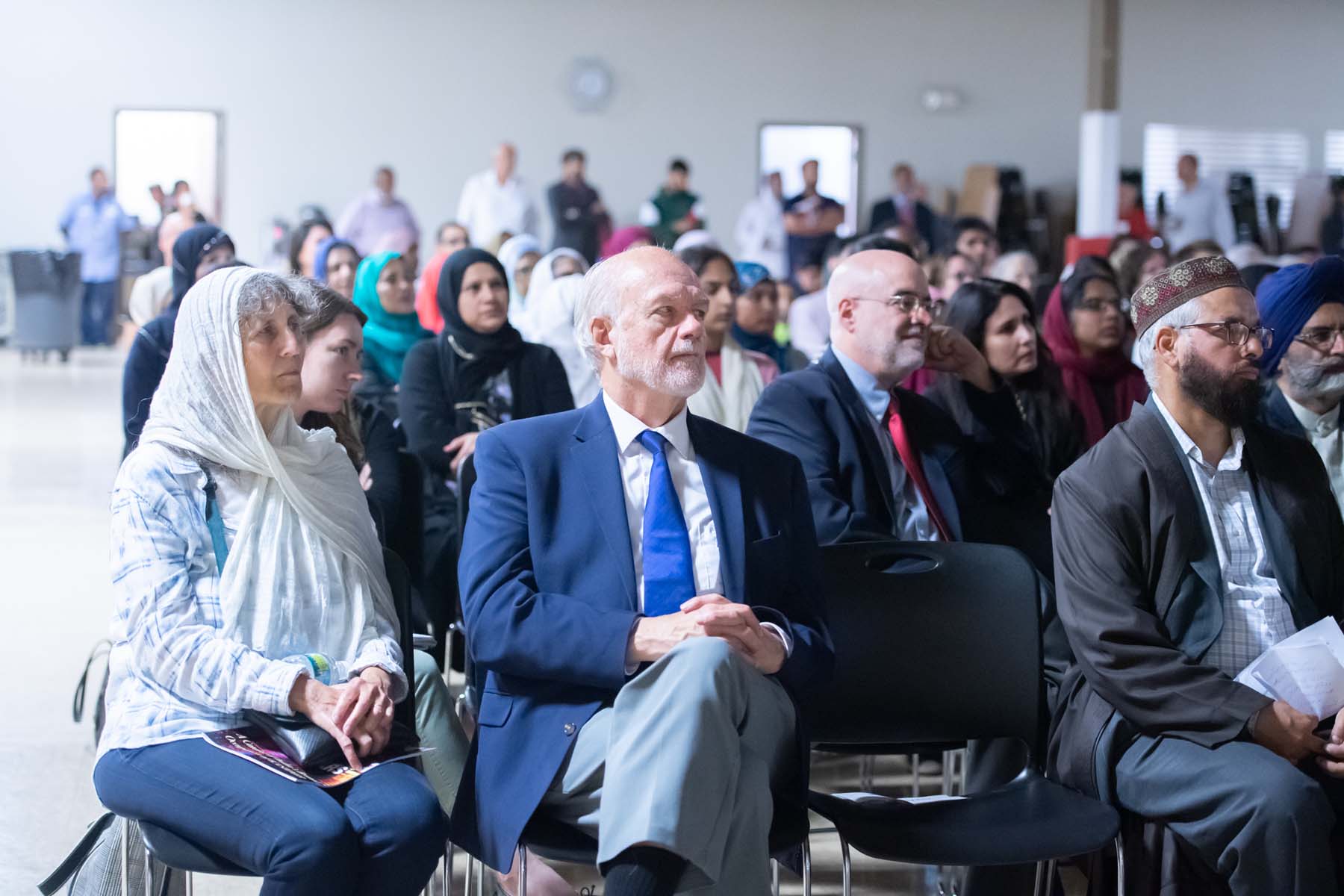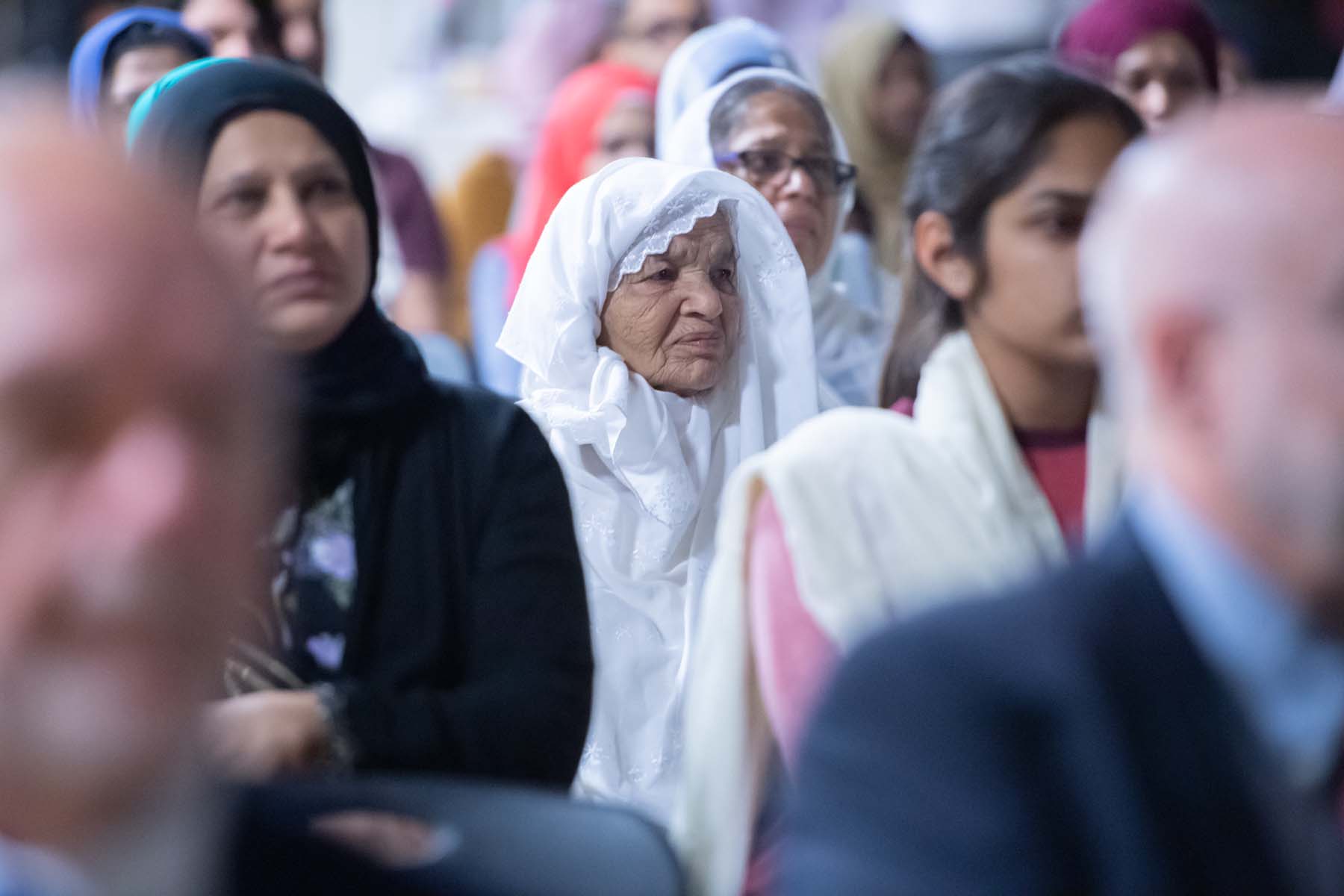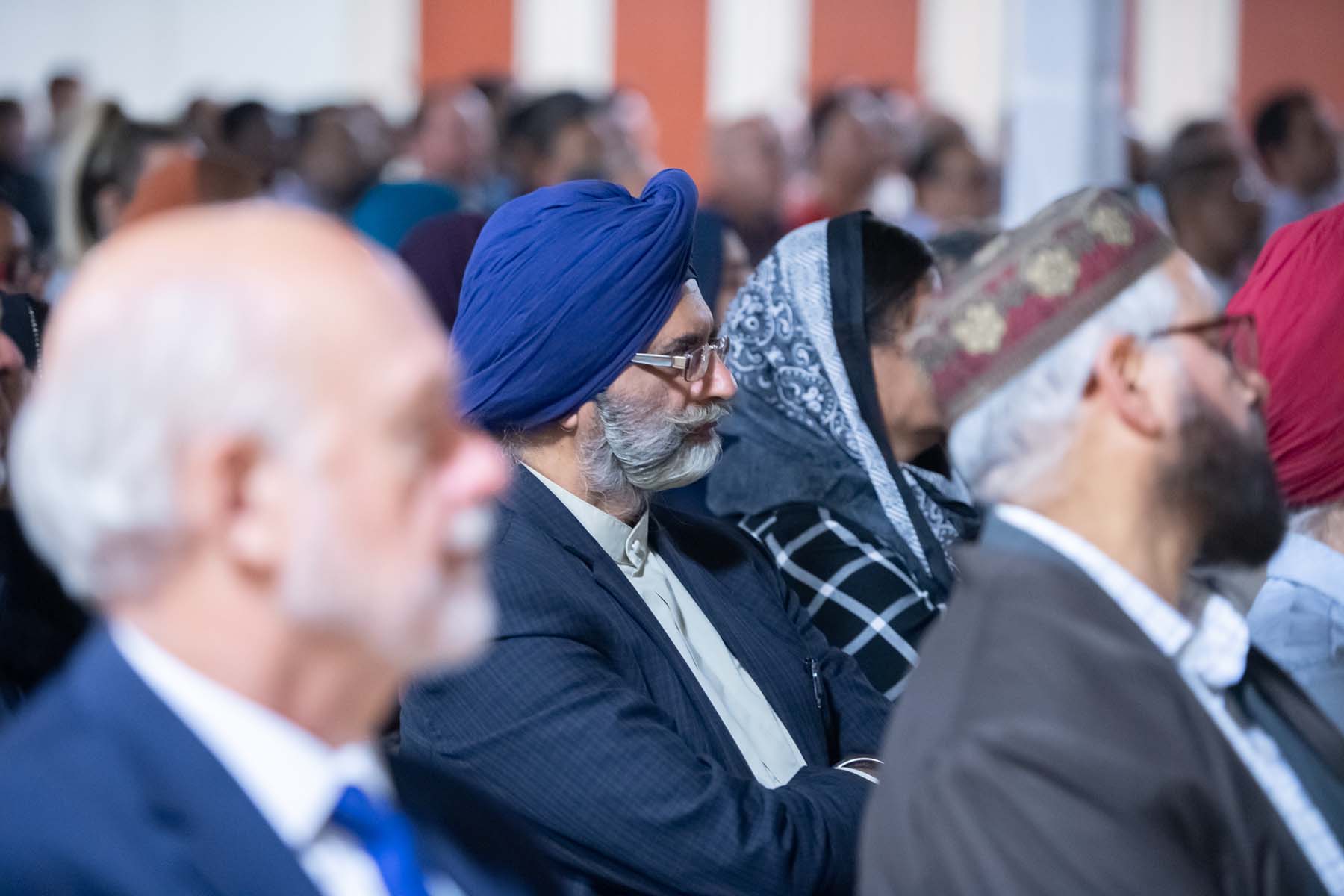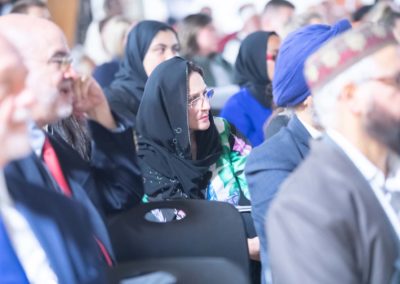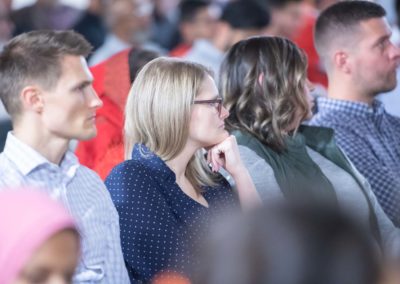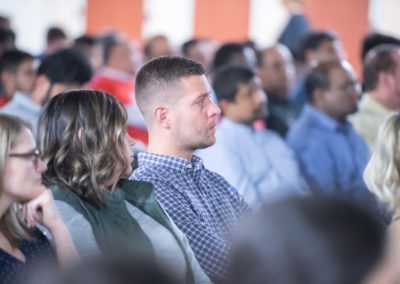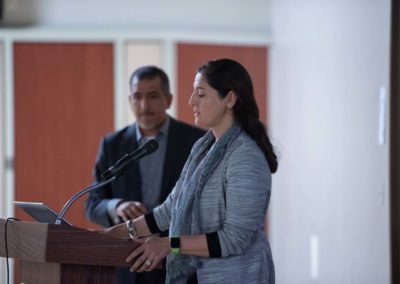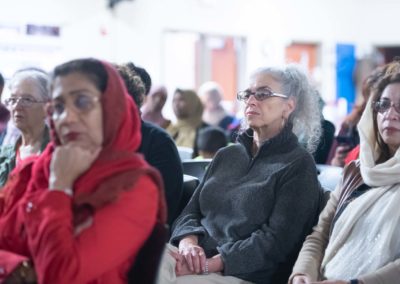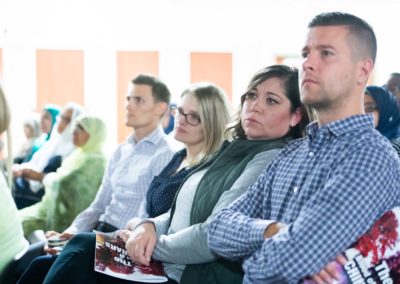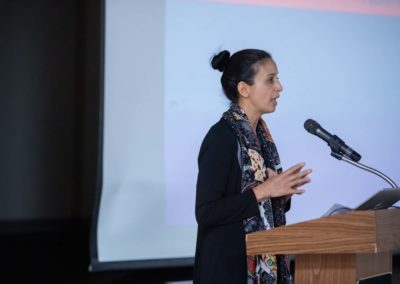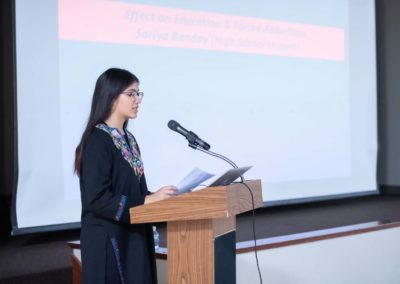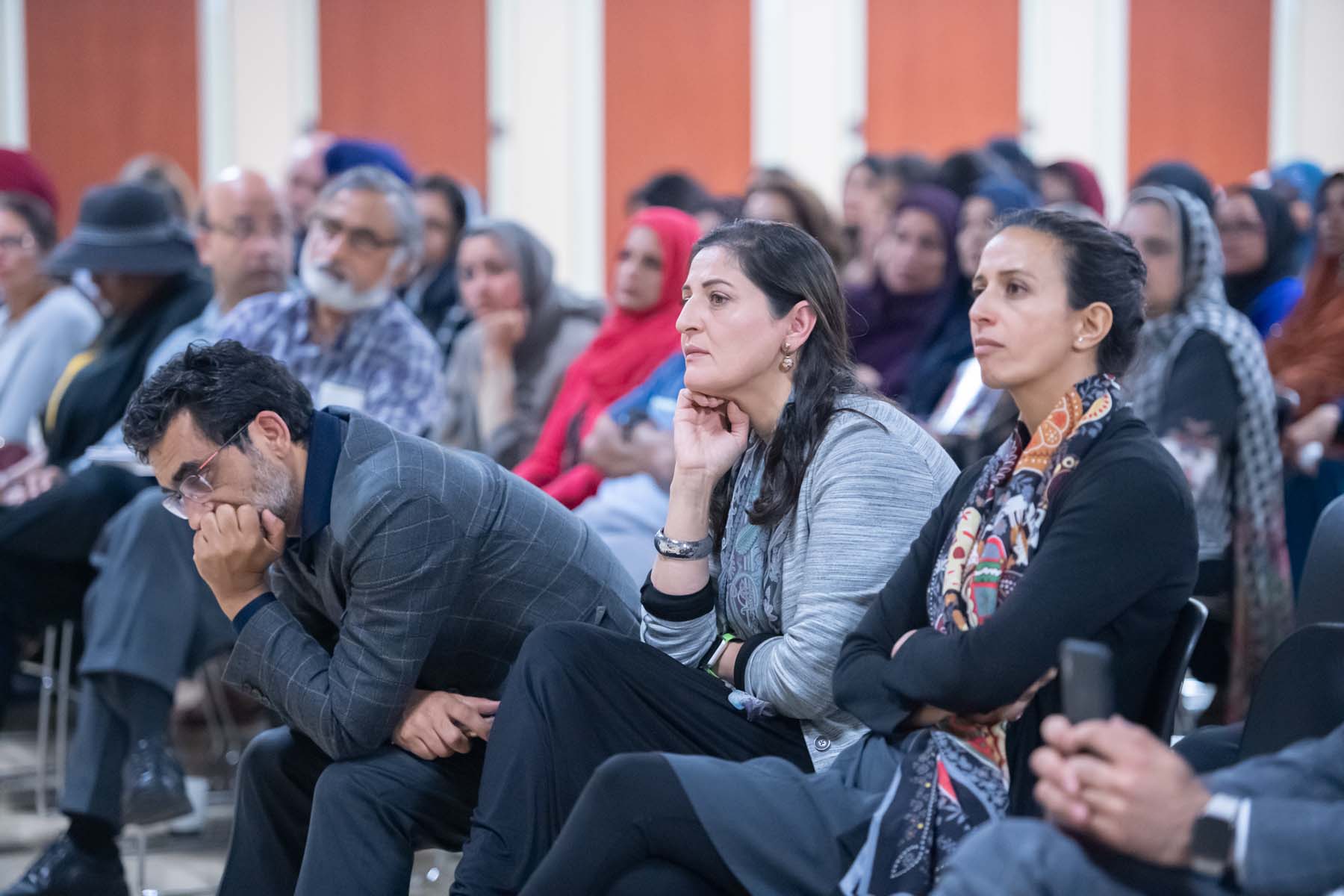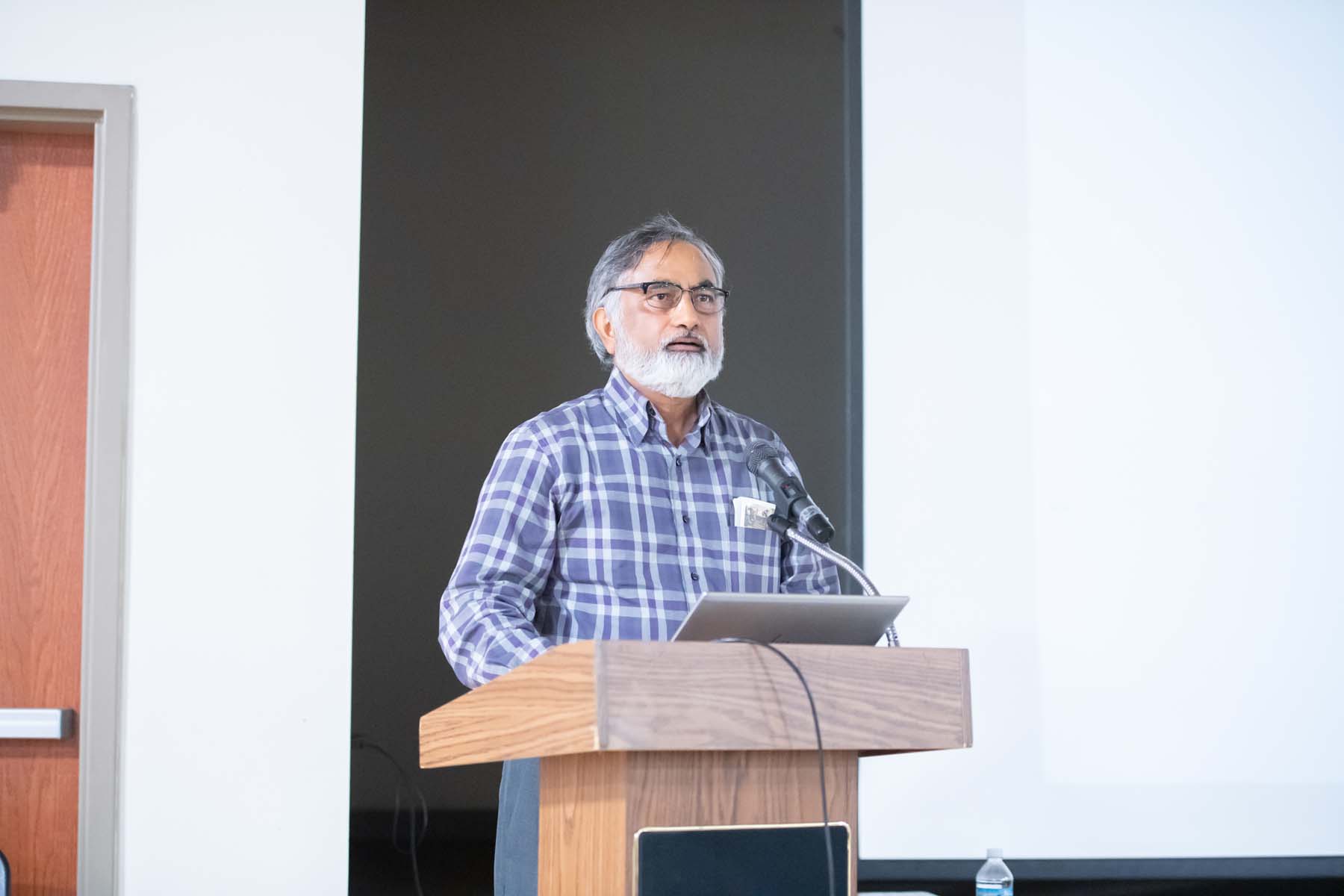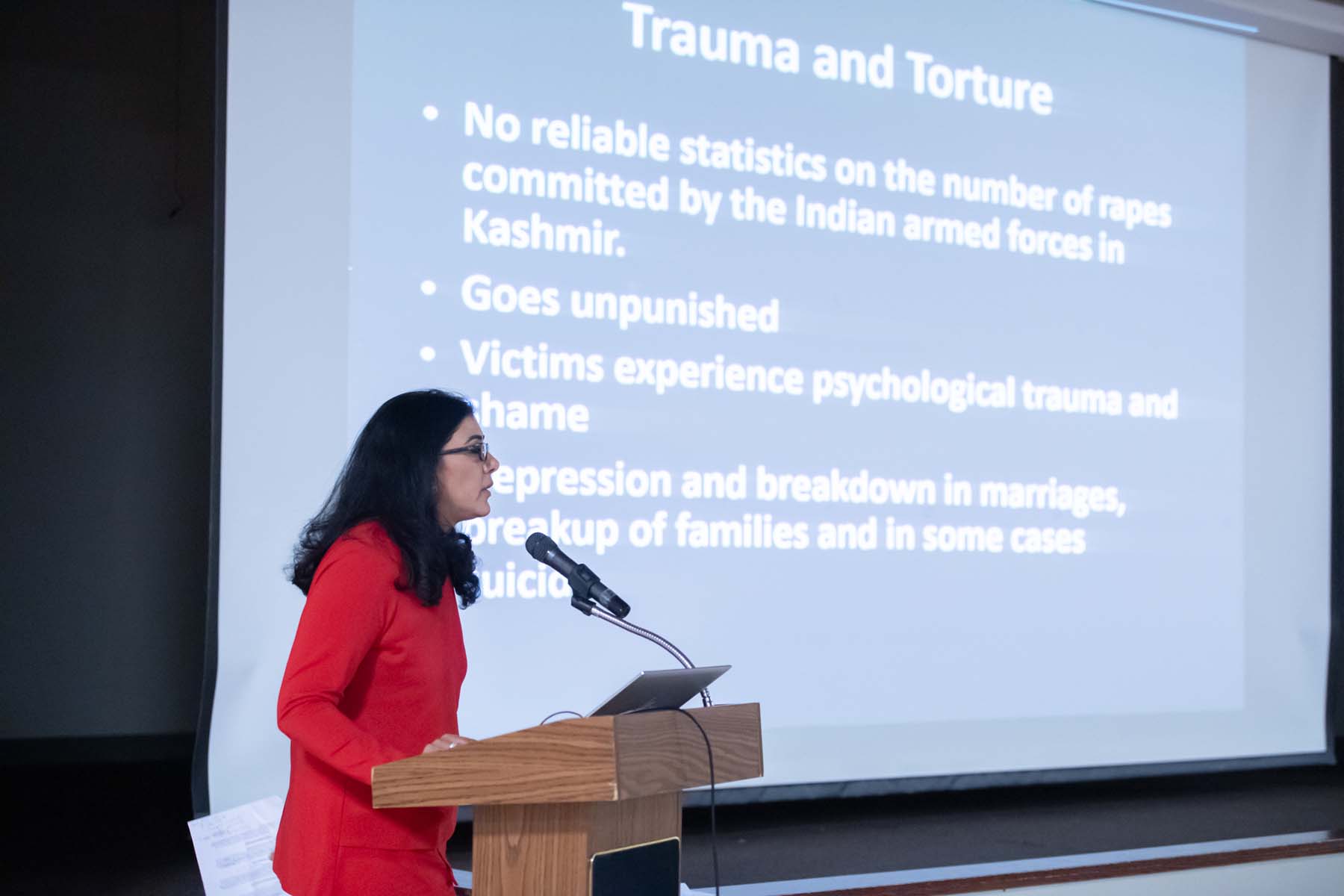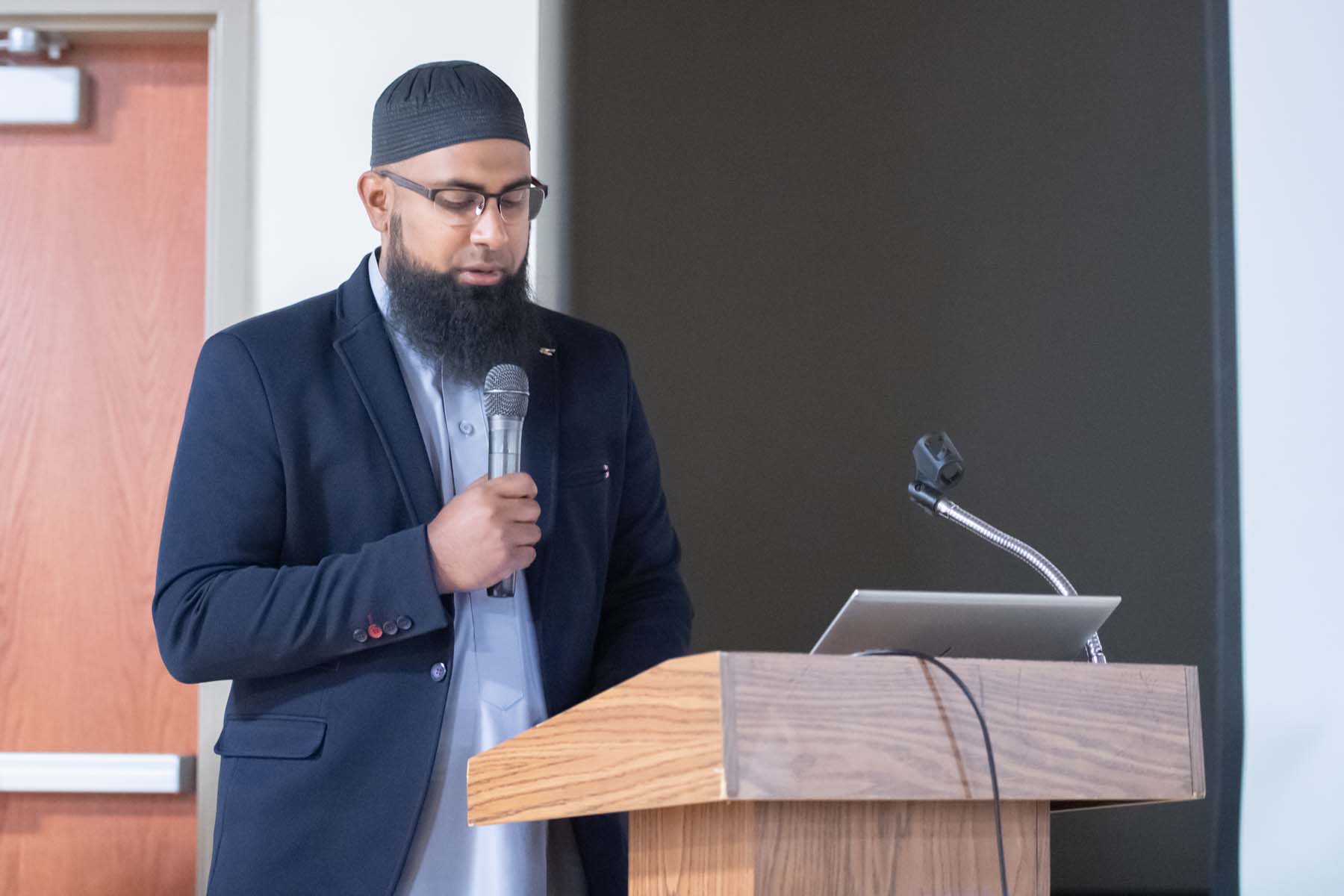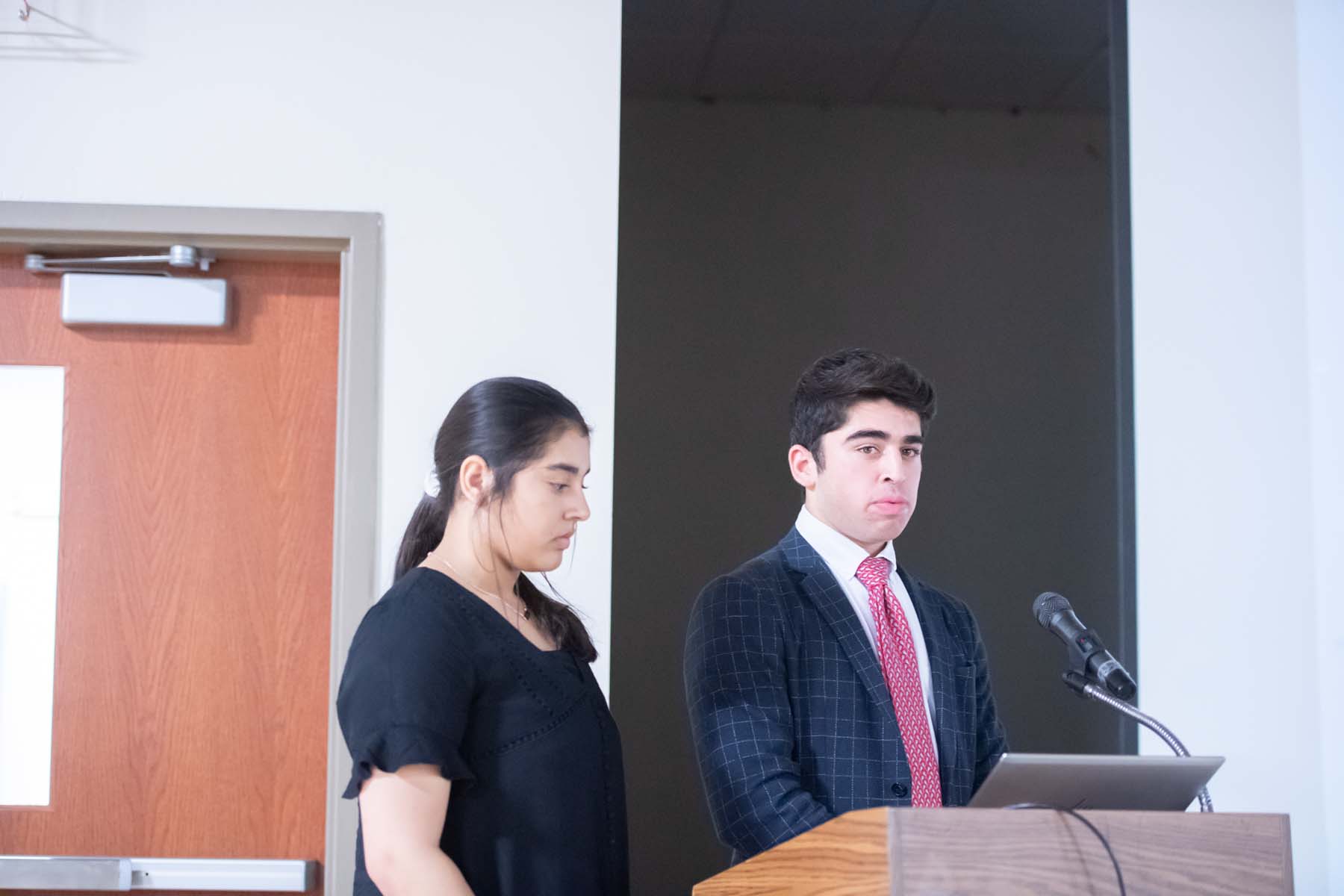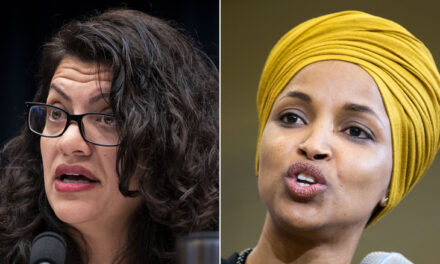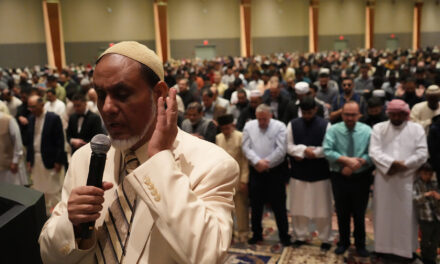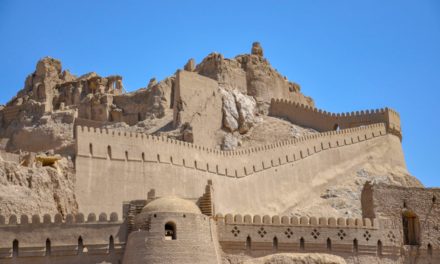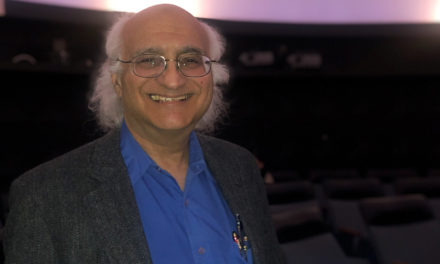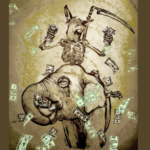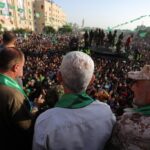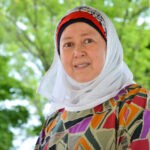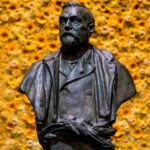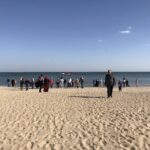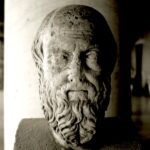© Photo
Mouna Photography for the Wisconsin Muslim Journal
On Wednesday evening, an interfaith gathering drew several hundred people to Salam Elementary School to show their support for the majority-Muslim population of the Indian-occupied land of Kashmir.
One after another, the speakers at the gathering contributed to the portrait of a territory and a people under lockdown and suffering intolerable conditions – systematic rape, torture, and denial of medical care. Even children are being abducted and disappeared, afraid to leave their homes to attend school.
The first speaker, who asked to remain anonymous, said, “There is a heaviness in the air that every Kashmiri feels now. . . There is a kind of dying that is continuous and staggered.” Indian-occupied Kashmir is “frozen into an unbearable silence behind concertina wire,” the speaker said.
The speaker shared a clip of the results of his daily phone calls to his mother in Kashmir. The audio featured an operator telling him his call could not be connected. The speaker has not spoken with his mother since August 5.
On that day, India officially revoked Article 370, which gave Kashmir autonomous status following the India/Pakistan partition in 1947. That autonomous status, the speaker said, has been eroding for the past 70 years. It is reported that there are currently 45,000 Indian troops in Kashmir.
India, said the speaker, is “coming down on a people with a punitive wrath.”
Fall is tourism season in Kashmir, which is famous for its apples, said Masarat Allaqaband, the second speaker of the evening. Today, she said, “the fruits are rotting and the hotels are all empty.” Driving with her brother through the deserted streets, Masarat took the pictures she shared with the audience, at serious risk to both their lives. “My brother said, ‘Are you trying to get us killed?’”
Masarat observed that the windows of homes near main roads were nothing but broken glass. Indian security forces had thrown stones at the houses. “Kashmiris are struggling to raise their voices against Indian atrocities that have been going on for years,” she said.“But I have never seen it like this.” Kashmiristold her, “We heard you guys are fighting for us. You have to fight for us and bring us justice.”
Dr. Suhail Allaqaband, Masarat’s husband, who recently returned from Kashmir with his wife, spoke about the lack of medical care and Kashmir’s closed hospitals, showing BBC footage of a doctor, trying to speak about the crisis, who was taken into custody right in front of news cameras.
Nusrat Kalloo, a mother of two from Mequon, discussed enforced disappearances, a tactic that has been condemned internationally since 2006, when the secretary-general of the U.N. signed The International Convention for the Protection of All Persons from Enforced Disappearance.
“No man, woman, or child should just be disappeared from this Earth,” Nusrat said. However, she added, “this egregious act continues every day in Kashmir.”
Since August 5, it is reported that 30,000 Kashmiris have disappeared, including children.
High school student Sariya Banday told attendees that Kashmiri children have not been able to attend school and are “afraid to step outside their homes. The price of education is their life.” Thus far, 38 students are known to have been killed, and 46 schools have been occupied by the Indian army, she said.
“They’ve been taking young school boys away, stopping only to molest the girls of the family,” she said. “An eleven year-old boy was beaten for six days straight.”
There are no reliable statistics on the number of rapes committed by Indian forces in Kashmir, but it is a tactic India has employedin the region for decades. Dr. Hina Mahboob told the audience, “Rape is conducted methodically to shame Kashmiris.” A video clip featured the survivors of an appalling incident that took place thirty years ago in the villages of Kunan and Poshpora, when all the men were taken away by soldiers, leaving the women behind to be raped. “The Indian army went berserk all night,” one villager said. A woman rape survivor said, “I am breathing, but I am not alive.”
On social media, ordinary Indians talk about encouraging their sons to marry “pale Kashmiri women” and gain title to their land.
Hassan and Hina, a brother and sister, drew attention to the Indian army’s use of pump-action pellet guns against Kashmiris. Pellet guns don’t kill, but they do maim. The young pair told the stories of two other young people, a boy of sixteen and a girl of fifteen, whose futures were changed forever after they were blinded by pellets fired from the army’s guns.
“Freedom is never voluntarily given by the oppressor. It must be demanded by the oppressed,” Hassan quoted Dr. Martin Luther King, Jr.
Amit Pal of the Freedom from Religion Foundation talked about some of the origins of the Indian fundamentalism and nationalism that has taken over the sub-continent, ascribing responsibility to Hindutva, the “largest non-governmental organization in the world” with 55,000 branches across India. Hindutva is the ideological force propelling India’s current government. Indian prime minister Narendra Modi “has been a member since he was eight years old,” Pal said.
Many of Hindutva’s tactics are taken from Mussolini’s Italian fascists, whom Modi allegedly admires, Pal said. He emphasized that, while “Hindutva is not Hinduism . . .ever since [Indian] independence, the autonomous status of Kashmir has rankled and the game plan has been to remove Article 370.”
Pal also said that Donald Trump has told Modi there will be “no pushback” from India’s actions in Kashmir.
Last Sunday, September 22, Modi joined Donald Trump for a mass rally in Houston, Texas attended by 50,000 people. Amid flashy dance routines displaying both Indian and Texan culture, Modi and Trump extolled “liberty” as protesters marched outside.
Masood Akhtar held up a copy of the United States constitution and said, “We have the right to life, liberty, and the pursuit of happiness. I don’t think Kashmiris know what happiness is at this point.”
Akhtar suggested some steps that can be taken to aid Kashmir, saying that attendees needed to be “pro-active” and“non-partisan.” And, he said, “We have to act on what we talk about today. We have to come out of our silos,” meaning our individual communities and concerns that isolate people from one another.
“If we work very hard, we can be the voices of those who are voiceless,” said Akhtar.
Tom Heinen, former executive director of the Interfaith Conference of Greater Milwaukee, was one of the speakers who closed the rally, along with Felesia Martin, a member of the Milwaukee County Board of Supervisors, who said, “Whenever I hear of these types of atrocities, it brings me to my knees to ask forgiveness for my not being aware of the suffering.”
And finally, Maria Montejano Kasperski, Deputy District Director for U.S. Representative Gwen Moore read her statement about the humanitarian crisis in Kashmir. The congresswoman said, “I stand in solidary with the 7 million people of Kashmir.” Moore condemned the fact that “45,000 Indian troops” were treating Kashmiri women as “the spoils of war.”
Efforts are underway to create a non-profit organization to aid Kashmiris. The vigil organizers informed the attendees that a fundraiser will be held on October 20.
